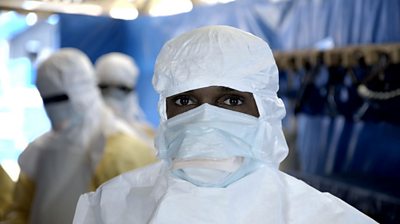Ebola virus disease (EVD), formerly known as Ebola haemorrhagic fever, is a severe, often fatal illness in humans. The virus is transmitted to people from wild animals and spreads in the human population through human-to-human transmission.
Any proposals to cover events related to any suspected or confirmed Ebola outbreak is considered a ‘high risk’ assignment. Please see the for more information about the ���˿���'s requirements.
As a reminder, if you are interviewing anyone who has recently come back from a high risk area, please use the guest flow chart – the rules regarding interviewing people who have returned from high-risk countries remain in place.
There are no official travel restrictions at present, but we advise against non-essential travel. Plans should be discussed with the High Risk team.
An aide memoire is available for travellers to affected countries, see below.
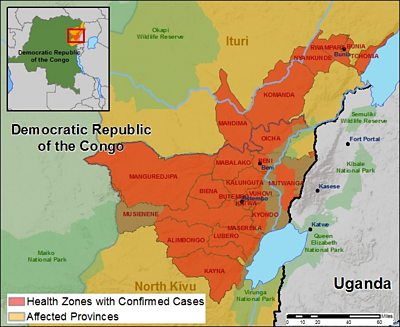
June 2019 Outbreak
There is an outbreak of Ebola in the Democratic Republic of Congo. Cases have also been identified across the border in Uganda. If travelling to the area, you must first contact the High Risk Team before you go. Our advice to travelers may change as the situation develops.
The Democratic Republic of Congo does experience outbreaks of Ebola virus on a recurring, but infrequent basis. In fact the disease itself gains its name from the Ebola River, close to where the disease was first identified in the country in 1976.
Because the country is familiar with such outbreaks they have been well contained in the past as there is a practiced system of containment to stop human to human transmission. There is no reason to suspect this particular outbreak will take a different course, but vigilance is required. It is possible that outbreaks like this occur because of contact between humans and wild animals, for example by consuming bush meat.
The Ebola virus disease (EVD) outbreak in the Democratic Republic of the Congo (DRC) continues to show a decrease in the number of new cases in hotspots such as Katwa, Beni and Kalunguta health zones. However, in other areas such as Mabalako and Butembo, moderate rates of transmission continue. with ongoing EVD transmission within communities in 12 health zones in North Kivu and Ituri provinces.
On 11 June 2019, the Ugandan Ministry of Health (MoH) confirmed a case of Ebola Virus Disease (EVD) in Kasese district, Uganda.
December 2015 outbreak
It has been shown that the Ebola virus can persist for months in certain parts of the body of those who have survived the disease and in rare cases can reactivate and cause illness.
Survivors who are symptom free are not a risk to others in normal social contact, however if you are planning to invite someone who has survived Ebola into the ���˿���, or interview them, then you should check that they are symptom free first. If they are then there is no cause for concern.
We know that Ebola survivors can take a long time to feel really well again, but If they have recent onset new symptoms, especially with a fever then you should not invite them in, or interview them until they have been checked by their doctor. UK residents who are Ebola survivors will have been allocated a contact in their local specialist infection disease unit, and if they have symptoms you should direct them there in the first instance.
It’s important to note that there are no known cases of a survivor passing on the virus except via semen and breast milk. The WHO says if survivors posed a significant threat – we would know about it by now as thousands have now returned to their communities.
If you are contacting survivors for interview, please remember this is a very delicate subject. Stigma and suspicion are rife in communities in the worst affected countries. Handling these questions with empathy and sensitivity will be enormously appreciated by your guest.
Public Health England advice Jan 2015
The ���˿���'s Chief Medical Officer has noted a change in PHE advice in relation to returning health workers – namely that they should not travel by air within the UK or take public transport for longer than 2 hours. We decided that this info should be included in the addendum to the Guest Flow Chart, so that guests are not inadvertently encouraged to break PHE guidelines if they need to travel long distances to come to a studio.
Also, it appears that the returning nurse who contracted Ebola told airport staff that she was not feeling well, but was allowed to board a connecting flight because her temperature was within limits. We modified the flow chart to make it clear that even if a potential guest does not manifest classic Ebola symptoms, they should not be brought in if they are not feeling well generally. The updated Flow Chart is attached to this page.
We decided that this Ebola meeting will take place once every two weeks (unless there is an emergency).
���˿��� News factsheets - Revised 12th January 2015
This guidance that has been put together for staff who are covering the Ebola outbreak or are concerned about the potential impact of this.
There are now three documents, since we have combined the old information sheet and the FAQ.
Number1 Ebola Virus Information Sheet - Aug 2014 (merged into the document below)
- General FAQs about the Ebola virus (pages 1 - 3) All updated 7th Nov 2014
- FAQ for staff who may be meeting guests arriving from infected areas who’ve been invited to ���˿��� premises for interviews (page 4)
- Specific health FAQs for those based in or planning to visit infected countries to film or produce programmes (pages 5 - 8)
- For travellers to affected countries. Updated Oct 2014
- How to deal with a guest for programmes who has come back from a high risk area. Updated 12th Jan 2015.
���˿��� and Public Health England (PHE) - staff briefing on the Ebola crisis.
There was a presentation to staff recently by PHE, the ���˿���’s Chief Medical Officer and the ���˿���’s High Risk team about the procedures when deploying teams to the area.
Protocol for dealing with guests visiting ���˿��� Buildings, including International Bureaux
Follow the Protocol described in the Ebola flow chart and read the addendum on it. The addendum is also added below.
The Protocol for dealing with guests visiting ���˿��� buildings helps you decide how to deal with contributors and visitors who have been to an Ebola endemic country as defined by the WHO and are to be invited in to ���˿��� buildings for programmes. It is designed to protect staff and others working in ���˿��� buildings from the risk of Ebola.
The most important factor, and that is why it is high up on the list, is to establish that the person has no symptoms immediately prior to entering the building. The early symptoms of Ebola Virus are a fever, muscle aches, a headache and a sore throat. Whilst these symptoms are shared with many other virus infections, they could indicate Ebola infection and so we must not allow them into our building and should interview by video or phone.
If a guest does not have symptoms you should also check how long ago they were in the infected country. If it is less than 21 days ago then you must also establish that they have registered with a reputable in country health authority.
In the UK our relevant in country health authority is Public health England [PHE]. Aid workers, medical staff, government staff, broadcasters etc. should have registered with PHE if they are returning from areas where Ebola is endemic. PHE assess their risk of exposure and design an appropriate monitoring programme for them.
In the event that an asymptomatic individual has returned within 21 days and has not been registered, then as a final check you need to establish whether they have had close contact with Ebola cases. Close contact means someone who has had unprotected physical contact with Ebola sufferers or the body fluids of infected persons.
In effect, for those returning from endemic countries, we are excluding anyone who has symptoms, and for those without symptoms anyone who has had close contact with Ebola cases less than 21 days ago and hasn’t registered with PHE or an equivalent body in their country.
Further Information
More information can be found on the WHO site, their page has links to other pages about the latest situation.
Useful documents
-
-
(Factsheet Number 1: Ebola Virus Information Sheet merged into this)
-
-
Recommended links
-
[���˿��� Network only]
-
-
-
-
Disease-specific topics
-

Bird Flu
Advice for staff covering the outbreak of avian 'flu in Yorkshire in 2014 -

Living with Coronavirus (Covid-19) – advice for staff
Advice for staff about travel and/or interviewing guests -
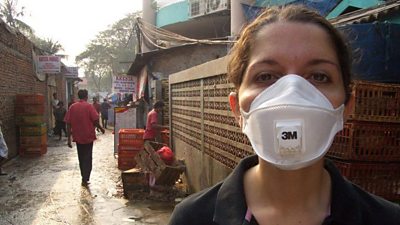
Disease and Contact with Viruses and Bacteria
A guide for anyone deployed to areas where there is risk from infectious disease from human, animal, insect or parasite sources, including zoonoses. These controls can also apply to harmful bacteria found in incidents such as sewage spills. -

Ebola Virus Disease (EVD)
Ebola is a contagious and often fatal illness which has had periodic outbreaks in the DRC and Sudan. -
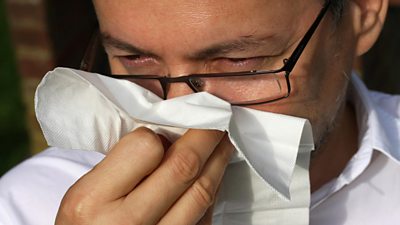
Influenza ('Flu)
A guide to influenza, or 'flu', for individuals seeking general advice or during an epidemic or pandemic situation. -

MERS: Middle East Respiratory Syndrome
This is a virus that is new to humans and was first identified in Saudi Arabia in 2012. -

Mpox (monkeypox)
Requirements to be met for Mpox (2024) outbreak coverage and/or travelling to work in areas where there are high reported cases of Mpox. -
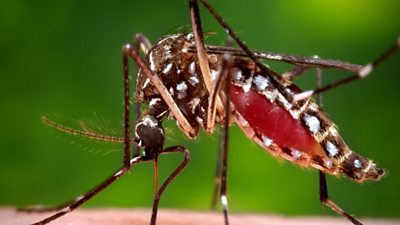
Zika Viral Disease
Zika Viral Disease is a mosquito-borne disease caused by the Zika virus. In 2015, the World Health Organisation declared it a global public health emergency.
More from SSR
-
Your platform to record accidents, risk assessments, assurance monitoring and inspections
-
Safety Equipment Stores
Just one number to call: 020 3614 5155 -
���˿��� Safety Guidelines
An A-Z of ���˿���'s Health and Safety Guidelines -
Safety Advice Line: 0370 411 0464 Email: safety@bbc.co.uk
- A-Z of ���˿��� Safety Guidelines
- Accident Reporting and Investigation
- ���˿��� Health & Safety Policy
- Contractors (incl. vetted lists)
- Contributors
- Fire Safety
- Freelancers
- Independent Production Companies
- Risk Assessment
- Safety Alerts
- Safety Responsibilities
- Safety Training
- Sets & Premises Safety Guide
Events guidance - key links:
- Exhibitions
- General Guidance
- Indoor Location Recce Checklist
- Outdoor Location Recce Checklist
- Major Incidents & Emergency Planning
- Marketing and Promotional
- Noise Exposure
- Planning and Management
- Responsibilities
- Responsibilities Form
- Laser Lighting Effects
- Strobe Lighting
- Temporary Stages and Rostra
Health topics - key links:
- (���˿��� network only)
- Contributors Fitness to Participate
- Display Screen Equipment (DSE)
- (���˿��� network only)
- First Aid and Welfare on Location
- International Travel - Risks & Health
- Manual Handling
- Mental Health: ���˿���page
- (���˿��� network only)
- Personal Health and Wellbeing
- Pregnancy
- Psychological Trauma Support & Trauma Risk Management (TRiM)
- Tiredness and Fatigue
- Travel Health Contacts
���˿��� High Risk - key links:
- CBRN and Industrial Spills
- Covert Filming
- Crisis Management and Security Support
- Demonstrations, Protests and Crowds
- Disaster Coverage
- Door Stepping
- (���˿��� network only)
- (���˿��� network only)
- Public Order
- Safety Equipment Stores
���˿��� Journalism - key links:
���˿��� Productions - key links:
- Aerial Filming and Airfields
- Animals: Displaying and handling for performance
- Boats: Working on
- Children and Young People
- Driving
- Electrical Equipment and Systems
- First Aid and Welfare on Location
- Food Safety (Cooking and Catering)
- Remote Location Working
- Roads and Streets: Working by
- Security of Productions on Location
- Stunts
- Tiredness and Fatigue
- Unmanned Aerial Systems (UAS aka Drones)
- Vehicles: Recording in, from and around
- Working at Height: Mobile Elevating Work Platforms
- Working at Height: Tower Scaffolds
���˿��� Radio - key links:
- (���˿��� Network only)
���˿��� Security - key links:
���˿��� Sport - key links:
About this site
This site describes what the ���˿��� does in relation to managing its health, safety and security risks and is intended for those who work directly for the ���˿���.
It is not intended to provide instruction or guidance on how third parties should manage their risks. The ���˿��� cannot be held liable for how this information is interpreted or used by third parties, nor provide any assurance that adopting it would provide any measure of legal compliance. More information
Some links on this site are only accessible when connected to the ���˿��� network
